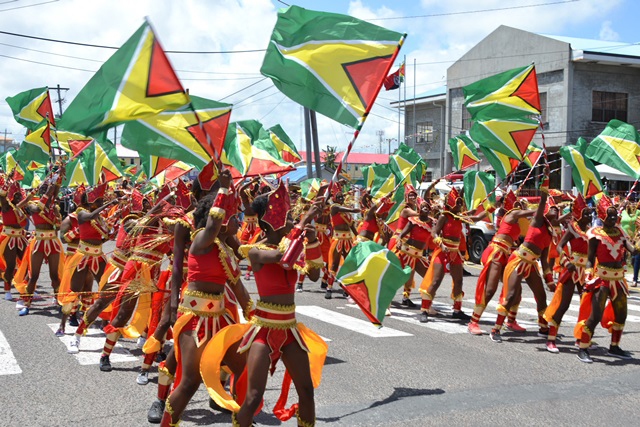The imminent arrival of the Carnival season in Trinidad & Tobago would appear to be posing challenges for the twin-island Republic’s Police Force on account of the seeming emergence of some of the customary ‘windup’ revelry that usually precedes the full-blown main course.
Earlier this week, sections of the media in Port of Spain were reporting that the country’s reputedly ‘tough-as-nails’ Commissioner of Police, Gary Griffith, had launched an investigation into a weekend public event which a report in the Trinidad Guardian said had “all the features of a Carnival band launch… in other words, a “public party,” and which would have transgressed the protocols associated with staying safe in the face of the COVID-19 pandemic.
The revelers at the event are deemed to have transgressed Section 4 (1) (d) of the country’s Public Health [2019 Novel Coronavirus (2019-nCoV)] Regulations, 2021, which states that it is an offence to hold public parties or public fetes and prohibits the holding of public parties at this time. It appears that video footage of the event acquired by the police showed patrons dancing to music inside the country’s Queen’s Hall.

If the media report seen by the Stabroek Business is anything to go by, it would appear that some of Trinidad & Tobago’s state agencies may be ‘getting their wires crossed’ as far as adherence to the COVID-19 strictures are concerned, since the same Guardian report states that law enforcement is to meet with officials of the country’s Ministry of Tourism, Culture & Arts, following the publication of a notice by that Ministry to the effect that four state premises would be open for business seemingly associated with the Carnival.
Griffith is reportedly tracking down reports of other rumoured public
entertainments planned to coincide with the country’s Carnival celebrations. His recent high profile intervention targeting transgressors of the COVID-19 strictures coincides with reports emanating from the Ministry of Health in Trinidad & Tobago that the country may be on the cusp of a third surge in the pandemic.
The public announcement by the Trinidad & Tobago ‘top cop’ that the citizenry can anticipate a proactive police posture in order to seek to ensure, as far as possible, the enforcement of the COVID-19 protocols during the Carnival ‘season’, strikes a contrast with the situation in Guyana where the Police Force has come in for criticism on account of what is widely believed to be its less than strict enforcement of the local COVID-19 restrictions. Among the criticisms that have been levelled at the Force in Guyana are that it appears to be providing ‘exemptions’ to the night-time curfew for some places of entertainment in the capital and that it frequently ignores blatant transgressions of the strictures.
As are the cases across the Caribbean where street events are held to mark major national events, Carnival and Mashramani in Trinidad & Tobago and Guyana, respectively, are seen as opportunities for small businesses to offer a range of food and drink to revelers and there is likely to be concern in both instances that what is almost certain to be the curtailment of street revelry will result in considerable loss of revenue not just for street vendors but for established businesses in the food and beverage sectors.
Some local street vendors with whom the Stabroek Business have spoken have said that they have no reason to believe that the street party dimension to this year’s Mashramani celebrations here will be staged as usual.










